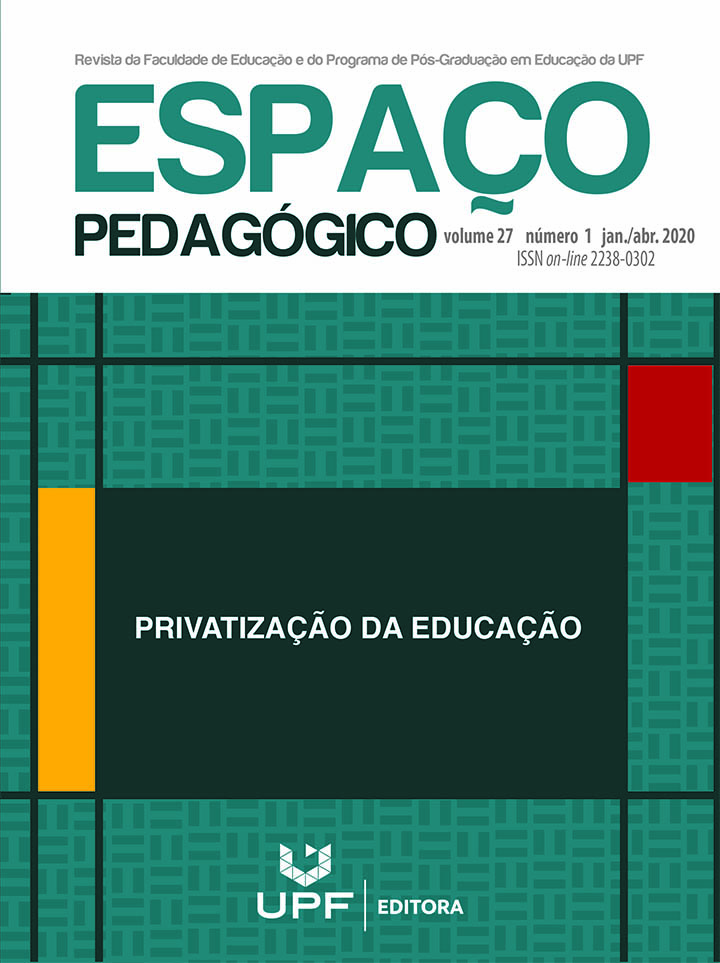A prática docente e as relações de gênero e sexualidades: conversando com professoras e professores
DOI:
https://doi.org/10.5335/rep.v27i1.10583Palavras-chave:
Escolas. Gênero. SexualidadesResumo
Qual tem sido o trabalho com gênero e sexualidade realizado por professores e professoras em 3 escolas na cidade de Juiz de Fora? Essa é a pergunta foco que direciona as análises neste artigo em torno das questões surgidas em uma pesquisa de mestrado realizada entre os anos de 2015-2016. Como gênero e sexualidade são organizadores sociais, resultado de construção histórica e cultural, ouvir e dialogar com professoras e professores é reforçar a ideia de que escolas não são essências, mas fruto de relações entre indivíduos e sociedade. Nesse sentido, estamos assumindo a perspectiva teórico-metodológica pós-estruturalista, influenciada pelos estudos foucaultianos, principalmente a partir da noção de problematização, vinculada à história do pensamento, que, não se propondo a oferecer soluções, proporciona a oportunidade de ampliar o debate sobre pesquisa no campo educacional. Como processo metodológico aplicamos um questionário nas escolas da cidade para identificar que professoras e professores assumiam fazer um trabalho com gênero e sexualidade. Dos 36 professores e professoras que assumiram tal trabalho, somente 5 aceitaram participar dos grupos focais em que discutimos as respostas ao questionário. São com essas falas construídas nos grupos focais que vamos trabalhar. Dois aspectos aparecem como resultados das conversas. O primeiro é a evidencia de que as professoras e os professores adquirem e colocam em prática conhecimentos que se referem às relações de gênero e sexualidade e conseguem fazer articulações com o seu fazer docente. O segundo é a demonstração de que as escolas que trabalham realizam um trabalho com gênero e sexualidade.



